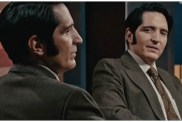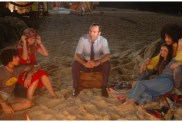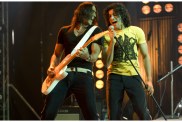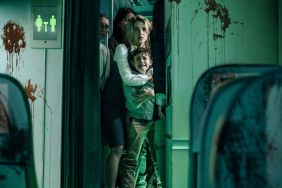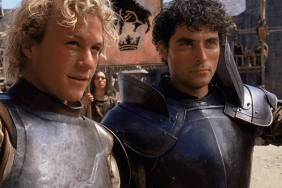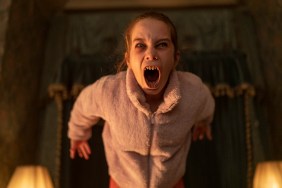
NOTE: This review was originally published on May 12, 2011 after I saw it at the 2011 Cannes Film Festival. I am reprinting it here as it hits theaters this weekend.
Once you’ve seen Gus Van Sant’s Restless, you realize the distributor shuffle the film has done over the past several months says a lot about what kind of film it is. Is it a movie better suited as a specialty film housed at Sony Pictures Classics, or is it more of a slightly comical, but more serious romantic drama for Columbia Pictures? Sony chose to hand it over to the former after it originally had a January release date with the latter. Do they have it figured out?
The dilemma Sony faced is represented in this tonally conflicted drama that never really seems to figure itself out. Just when you think its found its way it takes a left, carrying only fragments of its former self with it. By the time you get to the end you’ve been jerked in so many directions there’s very little left to take with you. Some could argue this is a result of the film falling in line with the path of its protagonists, and I’d agree, but it isn’t a path that necessarily ends up leading anywhere of much consequence, and certainly not one we haven’t traveled before.
The story revolves around Anna (Mia Wasikowska) and Enoch (Henry Hopper), a pair of late-teens lost in their ways for different reasons, though both are confronting the demons that death beholds. Enoch crashes funerals as he’s still trying to cope with the loss of his parents who died in a car accident — one that almost took his life as well. And, as if that wasn’t enough, he spends most of his time with Hiroshi (Ryo Kase), the ghost of a Japanese kamikaze pilot who’s been with him since his parent’s death. Anna’s complications are a bit more simple, but far more dire. She’s just been told the tumor growing in her brain gives her only three more months to live.
Anna and Enoch find one another in a twist of fate that obviously allows them only a short time together, but perhaps within that time they can each find something in the other to help them along their way. Basically, this film isn’t anything new from a story standpoint and when screenwriter Jason Lew attempts to spice it up into something original it feels very forced as all of the pieces have a hard time coming together.
Where story and structure left me ultimately unfulfilled, Restless became a film for the two lead actors to showcase their talents and from that perspective it works. Wasikowska has managed to choose a string of several good films since her major debut in Alice in Wonderland. From The Kids are All Right to Jane Eyre, each film continues to prove she’s an actress with something the camera and audience likes. With Restless she once again proves to have a special something, though I could never quite tell if some of her character’s behaviors were due to her brain tumor or if she was indecisive on how to play Anna.
Hopper on the other hand — yes he is the son of the late Dennis Hopper — is the film’s main standout. He gives a top-notch performance, playing a character far more complicated than anyone would initially assume. There’s something in his eyes and his James Franco-esque smile that captures your attention. He brings wit and charm to his character, making it easy to understand why Anna would be so taken with someone who seems to need some serious psychiatric help.
I should also mention Schuyler Fisk — another member of the “famous actor sibling group” as she’s the daughter Sissy Spacek — who gives a passionate turn as Anna’s sister Elizabeth. Her’s isn’t a large part, but she manages the role of the concerned big sister rather well.
Van Sant is also extremely effective with his camerawork, teaming once again with longtime cinematographer Harris Savides to provide several fantastic close-ups of Wasikowska and Hopper together. The most impressive moment of the bunch comes just after the two draw chalk outlines of themselves as the film calls back to David Lynch’s Mulholland Dr. and before that, Ingmar Bergman’s Persona. This instance, however, is presented under much lighter circumstances than those two.
Otherwise, this is just another “respect the dead” and “live your life to the fullest” kind of movie. It doesn’t inspire much by the way of conversation and even the emotional highs you already know are coming don’t have the guttural impact they should. A lot of emotion is lost in the tangents the film takes, most notably a dramatized death scene Anna and Enoch concoct that would’ve played better if you didn’t actually think Van Sant had somehow shoehorned in one of the most ill timed scenes of his career. Yeah, it wasn’t the actual death scene we had been anticipating since we learned Anna was inevitably going to die, but it threw me off and I was never able to get back on track.

